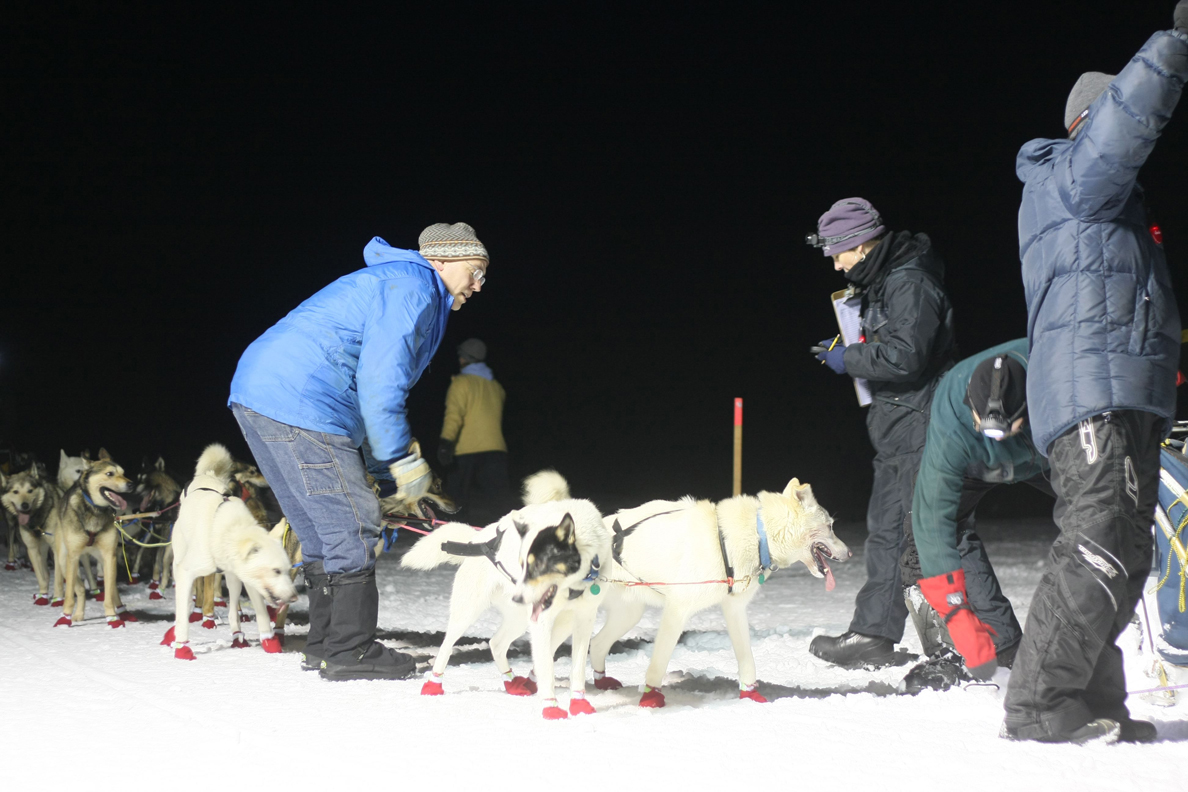The sled dogs pulled Mitch Seavey to the finish line and the veteran musher smiled. He appeared comfortable wearing a lightweight jacket. A blotch of frost covered the left side of his mustache.
It was Seavey’s first win at the Tustumena 200 Sled Dog Race. The win caught him off guard, he said.
“I went out for a training run and came back first,” he said.
This year’s T200 came together despite a winter lacking in snowfall and abundant in warm temperatures. Workers busily packed the trail snow the week before the race to prevent it from melting; concerned mushers wondered about the snow conditions as the start date approached.
But, the race began as planned. At 11 a.m. Saturday, a total of 35 mushers gathered at Mile 112 of the Sterling Highway in Kasilof. Many mushers competing in the T200 either have competed in, or will be racing in, this year’s Iditarod.
The roughly 200-mile race took mushers from Kasilof to Homer and back and this year offered a $25,000 purse spilt among the top ten finishers. Seavey received $7,000 of that pot, which he will use to buy more dog food, he said.
Seavey finished at 5:25 p.m. Sunday with a total race time of 30 hours and seven minutes — nearly 20 minutes before the second place musher Ray Redington. Four-time Iditarod winner Jeff King finished third, followed by Paul Gebhardt, Wade Marrs, Ken Anderson, Ellen Donoghue, Travis Beals, Kristy Berington, Robert Bundtzen and Roger Johnson.
Two mushers were cleared of any misconduct after the death of two dogs racing on separate teams during the race.
Fox, a 2-year-old female on Gebhardt’s team died while nearing the finish of the race. According to race officials, Gebhardt attempted life-saving measures but could not revive the dog. Jack, a 3-year-old male on Girdwood musher Nicolas Petit’s team died between the race’s Homer and Freddie’s Roadhouse checkpoints.
Tami Murray, T200 president and race director, said necropsies on the two dogs have been performed and both Petit and Gebhardt have been cleared of any misconduct or abuse related to the dogs’ deaths. Murray said she wanted the race’s veterinarian to speak to the results of the necropsies, but did say both dogs were healthy prior to the event.
Murray said all those involved with the T200 were saddened by the loss. She added that it was rare to have two dog deaths in a mid-distance race like the T200.
“We were all really shocked about it and we’ve never had it happen,” she said.
Seavey gets first T200 win


